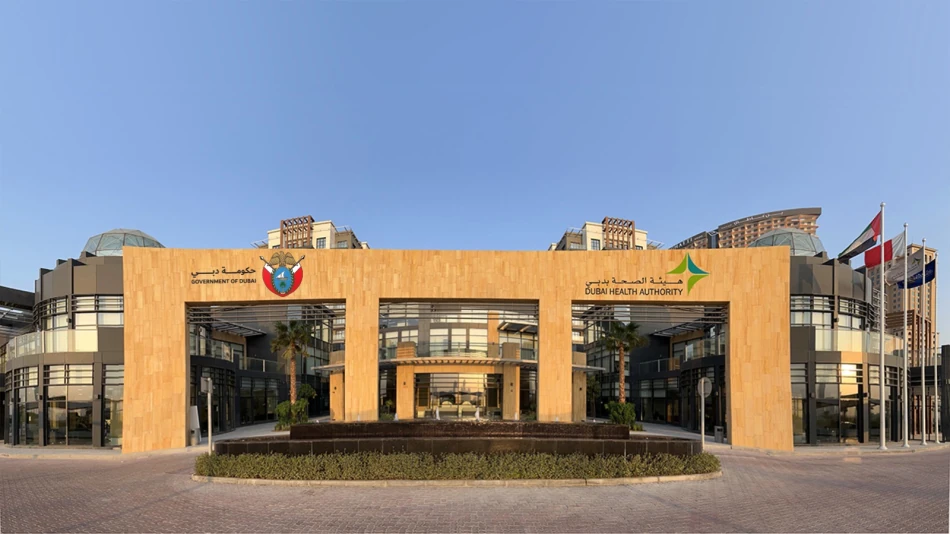
Dubai's Vibrant Healthcare Ecosystem: 10M Medical Records, 1,888 Facilities on 'Nabdh' Platform
Dubai's Digital Health Revolution: 10.4 Million Medical Records Signal Major Healthcare Transformation
Dubai's unified medical platform "Nabd" has crossed a critical milestone, accumulating over 10.41 million medical records by June 2025, marking the emirate's ambitious push toward becoming a global leader in digital healthcare infrastructure. The platform now connects 53,659 medical professionals across 1,888 licensed healthcare facilities, creating an unprecedented level of healthcare integration that could reshape how medical services are delivered across the Middle East.
The Scale of Digital Integration
The numbers behind Dubai's healthcare digitization effort reveal the scope of this transformation. With 91 electronic medical record (EMR) systems now integrated into the Nabd platform, Dubai has created what amounts to a comprehensive digital nervous system for its healthcare sector. This level of integration enables real-time, secure access to patient information across the emirate's entire medical ecosystem.
The platform represents more than just technological advancement—it's a fundamental restructuring of how healthcare data flows between public and private providers. By creating a unified database, Dubai is positioning itself to respond more effectively to health emergencies while supporting long-term research and policy development.
Strategic Implications for Healthcare Markets
Investment and Innovation Opportunities
Dubai's digital health infrastructure creates significant opportunities for healthcare technology companies and investors. The platform's success demonstrates proven demand for integrated healthcare solutions in emerging markets, particularly in regions where public-private healthcare partnerships are expanding rapidly.
The scale of adoption—with over 50,000 medical professionals actively using the system—provides a compelling case study for similar initiatives across the Gulf Cooperation Council (GCC) countries and other developing healthcare markets.
Competitive Positioning Against Global Leaders
Dubai's approach mirrors successful digital health initiatives in Singapore and Estonia, but with a crucial difference: the emirate is implementing these systems while simultaneously expanding its healthcare infrastructure. This parallel development of digital and physical healthcare capacity could provide Dubai with advantages that more established healthcare systems struggle to achieve due to legacy infrastructure constraints.
Unlike the fragmented electronic health record systems in the United States, Dubai's unified approach eliminates many interoperability challenges that have plagued digital health initiatives in more mature markets.
Transforming Medical Practice and Patient Care
Dr. Mohammed Al Reda, Director of Health Informatics and Smart Health at Dubai Health Authority, emphasized that the platform's growth reflects healthcare providers' confidence in the system's ability to support critical medical decision-making. The integration reduces procedural redundancy, minimizes medical errors, and creates comprehensive patient profiles that update in real-time.
This capability becomes particularly valuable in emergency situations, where medical teams can instantly access complete patient histories, medication records, and treatment protocols. The system's ability to facilitate seamless transitions between healthcare providers represents a significant advancement in patient care continuity.
Broader Economic and Policy Implications
Dubai's digital health infrastructure supports the emirate's broader economic diversification strategy, positioning healthcare as a key sector for attracting international investment and medical tourism. The platform's success could accelerate Dubai's development as a regional healthcare hub, competing directly with established medical destinations like Singapore and Thailand.
The initiative also demonstrates how emerging economies can leverage digital infrastructure to leapfrog traditional healthcare development models. By building integrated systems from the ground up, Dubai avoids many of the costly retrofitting challenges that established healthcare systems face when attempting digital transformation.
As healthcare digitization becomes increasingly critical for economic competitiveness, Dubai's Nabd platform represents a strategic asset that could influence the emirate's long-term position in the global healthcare market. The platform's continued expansion and integration will likely serve as a model for other developing healthcare systems seeking to modernize their infrastructure efficiently.
Most Viewed News

 Sara Khaled
Sara Khaled






